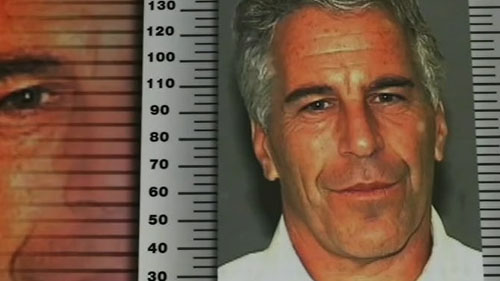| Recent Featured Videos and Articles | Eastern “Orthodoxy” Refuted | How To Avoid Sin | The Antichrist Identified! | What Fake Christians Get Wrong About Ephesians | Why So Many Can't Believe | “Magicians” Prove A Spiritual World Exists | Amazing Evidence For God | News Links |
| Vatican II “Catholic” Church Exposed | Steps To Convert | Outside The Church There Is No Salvation | E-Exchanges | The Holy Rosary | Padre Pio | Traditional Catholic Issues And Groups | Help Save Souls: Donate |  |









 " />
" /> " />
" /> " />
" /> " />
" /> " />
" />




The Apostle to the Vikings
St. Ansgar (A.D. 801-865) was a ninth century French missionary to the people of Denmark, Sweden and northern Germany. He was also a Benedictine monk. Early in his life, Ansgar desired to preach the Gospel in pagan lands. He founded the first Christian church in Sweden in 832.
The Life of Ansgar was written by his companion and successor, Bishop Rimbert. Here are some interesting quotes from his life, as communicated by his companion, Bishop Rimbert.
ANSGAR’S VISION OF PURGATORY
“By means of this light and without any effort on his part, the saints mentioned above led him in a strange and indescribable way till they came to a certain place which, without making any inquiry, he knew to be the fire of purgatory, and here they left him. When he had suffered much and seemed to have experienced the blackest darkness and the most enormous pressure and choking, he was deprived of all memory and his only thought was how could so terrible a punishment exist. When he had been tortured here for three days, but he thought the time seemed to him to be more than a thousand years, because of the greatness of the suffering - the men before mentioned returned and stood by him with much greater joy than before.” (The Life of Ansgar, The Apostle of the North, chapter 3)
ANSGAR’S VISION OF GOD AND LIGHT
Vision of St. Ansgar (9th century): “When then I had been brought by the men whom I mentioned into the presence of this unending light, where the majesty of almighty God was revealed to me without need for anyone to explain, and when they and I had offered our united adoration, a most sweet voice, the sound of which was more distinct than all other sounds, and which seemed to me to fill the whole world, came to me from the same divine majesty…” (The Life of Ansgar)
THE PAGANS WORSHIPPED AND SERVED DEVILS
The pagan inhabitants of the Scandinavian lands evangelized by Ansgar, who are often referred to as the Vikings or Norsemen, worshipped false gods. Christians recognized their gods to be devils, as Scripture teaches in Psalm 95:5 and 1 Cor. 10:20. Candidates for baptism at the time were called to renounce the false gods of the Vikings, such as Wodan and Odin.
THE VIKINGS SACRIFICED HUMANS AND ANIMALS
“At this time Upsala, which was about twenty miles north of Sigtuna, was the chief centre of heathenism. It contained a gilded temple surrounded by a sacred wood on which the bodies of men and animals that had been sacrificed to the gods were constantly hanging. The temple which contained images of three of the national gods of Sweden, Thor, Wodan and Sicco, [See Adam Bremen. Ins Aq. XXVI, XXVII] was not destroyed till seventy years after the death of Ansgar.”
At the Swedish port Birka, the king Biorn gave St. Ansgar permission to preach the Gospel. Ansgar converted one of the king’s counselors named Hergeir. Hergeir was a strong convert and called the pagans to convert. Concerning the pagan gods they worshipped, “Hergeir, the faithful servant of the Lord, was angry with them and said, ‘Your vows and sacrifices to idols are accursed by God. How long will ye serve devils and injure and impoverish yourselves by your useless vows.’… After these occurrences Hergeir brought forward a proposal in a public assembly and advised that they should try more earnestly to ascertain who was God. 'Alas, wretched people,' he said, 'ye now understand that it is useless to seek for help from demons who cannot succor those who are in trouble. Accept the faith of my Lord Jesus Christ, whom ye have proved to be the true God and who in His compassion has brought solace to you who have no refuge from sorrow. Seek not any more after superstitious worship, or to appease your idols by useless sacrifice. Worship the true God who rules all things in heaven and earth, submit yourselves to Him, and adore His almighty power.'" (The Life of Ansgar, The Apostle of the North, chapter 19)
THE VIKING KING CLAIMED TO BE THE DESCENDANT OF ODIN
“During the eighth century the Sveas and the Goths were ruled by a single king. Their king, whose capital was Upsala, claimed divine origin as the descendant of Odin, and every nine years a great assembly of Sveas and Goths was held at this temple at which he took the lead. A belief in the survival of their ancestors formed part of the popular religion.” (The Life of Ansgar)
This is interesting because it’s another example of how the leaders of many pagan religions claimed to be descendants of a god, or born from God, or a kind of incarnation of God. It was the devil’s way of attempting to ape the reality of the one true incarnation of God, Our Lord Jesus Christ, in the various false religions he has concocted. This is also relevant because many Protestants claim that Catholicism is based on Babylonian paganism. They will argue that Catholic teaching on Mary as Queen of Heaven, which is supported in Revelation 12:1, comes from Babylonian paganism. Their claim that Catholic teaching comes from paganism is of course baseless and ridiculous, but if they were consistent in concluding that any similarity at all between an ancient pagan religion and a later religion means that the latter is based on or comes from the former, then they would have to reject Christ Himself; for He, the Son of God and true God, the Second Person of the Holy Trinity who existed from all eternity, was eternally born from God the Father, as the Gospel teaches us; and many ancient pagan religious leaders claimed to be born from a god or to be descendants of God.
POPE GREGORY IV ISSUES A PAPAL CURSE
In 831 Ansgar went to meet Pope Gregory IV to obtain approval for his position. The pope confirmed Ansgar’s ministry by an authoritative decree. The words Pope Gregory IV used are very interesting. He smote with a curse and committed to everlasting vengeance and the companionship of devils anyone who would resist or interfere with the efforts to evangelize the Swedes and the Danes. So much for the heresies of interreligious dialogue, false ecumenism and the ‘You Can’t Judge’ heresy, which are all opposed to infallible Catholic teaching.
“In order that these arrangements should be permanently established the emperor sent Anskar to the apostolic see, and by his messengers the venerable bishops Bernold [Bishop of Strassburg] and Ratold [Bishop of Verona, ob. 874.] and the illustrious count Gerold, he caused the whole matter to be made known to Pope Gregory [i.e. Gregory IV, 827-844] so that it might receive his confirmation. The Pope confirmed this, not only by an authoritative decree, but also by the gift of the pallium, in accordance with the custom of his predecessors, and he appointed him as his legate for the time being amongst all the neighbouring races of the Swedes and Danes, also the Slavs and the other races that inhabited the regions of the north, so that he might share authority with Ebo the Archbishop of Rheims, to whom he had before entrusted the same office. At the tomb of the holy apostle Peter he [Pope Gregory IV] publicly committed to Ansgar authority to evangelize these races. And, for fear lest anything that he had done should prove ineffectual in time to come, he smote with his curse any who should resist, or contradict, or in any way attempt to interfere with the holy intentions of the emperor [Ludovic] and committed such a one to everlasting vengeance and the companionship of devils.” (Pope Gregory IV and Ansgar, A.D. 831; The Life of Ansgar, The Apostle of the North, Chap. 13)
ANSGAR IN THE DIOCESE OF HAMBURG
It should also be noted that Ansgar was appointed to the See of Hamburg in 831 by the emperor, before the pope knew about it. The See of Hamburg was a brand new see which the emperor himself formed. After he created it, he appointed Ansgar to the position. Ansgar was then consecrated by bishops of the area. Pope Gregory IV confirmed the arrangement, but he did so after the fact. Hence, this is another example of how at various times in Church history bishops were sometimes consecrated and installed into even brand new territories without a papal mandate or without receiving papal approval. This contradicts and refutes the position of ‘no jurisdiction’ schismatics. They hold that in an unusual situation (e.g. an emergency or a crisis), such as what we see today, no one is permitted to consecrate a bishop without a papal mandate under pain of excommunication. In fact, they hold that people are forbidden to do anything at all in regard to a priestly or religious ministry today. Their position is based on a misunderstanding and misuse of ecclesiastical laws which were promulgated for specific circumstances and periods of time. According to their position, to operate lawfully everyone must have the approval from an ordinary that is typically received in normal circumstances. And since jurisdiction is necessary for priests to validly absolve people in confession, the ‘no jurisdiction’ schismatics conclude that essentially all absolutions pronounced by even validly ordained priests today are invalid; for, according to them, those priests cannot have jurisdiction without the approval of an ordinary. Their position is utterly false. It is a perversion of canon law and a failure to understand Catholic principles. It is also contradicted by many examples in Church history. The appointment of Ansgar is just one such example. Yes, the approval of the pope or ordinary is the normal way ecclesiastical mission (by which people receive jurisdiction) is given; but the Church can and does provide it directly in various situations. The Church has supplied (and will supply) jurisdiction automatically for the benefit of the faithful in various circumstances. The error of the ‘no jurisdiction’ schismatics is found in their failure to recognize the following distinction: i.e. while it is necessary by divine law, for example, to have jurisdiction to pronounce a valid absolution, the way in which the Church gives that jurisdiction is a matter of ecclesiastical law. Hence, those laws which govern how one receives ecclesiastical mission or jurisdiction, since they are of ecclesiastical law, can have exceptions. They can cease to apply or bind in various circumstances. That’s precisely why in many cases in Church history bishops who were installed before they were approved by a pope, or even outside the channels approved by a pope, still acted validly in hearing confessions and granting absolution when approached by Catholics in good faith. The position of the ‘no jurisdiction’ schismatics is false.
ANSGAR’S LOVE OF SOLITUDE
“Here he [St. Ansgar – 9th century] dwelt with a few companions and, as often as he could get free of preaching and ecclesiastical duties and the disturbances caused by the heathen, he dwelt here alone, but he never allowed his own convenience, or his love of solitude, to interfere with the interests of the flock that had been entrusted to him.” (The Life of Ansgar, The Apostle of the North)
Our video, Solitude: Behold Where God is Found, discusses the importance of solitude in both building a relationship with God and in analyzing things correctly according to God’s view, rather according to the corrupted opinions of men. During his efforts to convert the people of northern Europe, Ansgar was opposed by many pagans. They forced him out of Denmark. Nevertheless, Ansgar had success making converts among the pagans of those lands. Many people were baptized. St. Ansgar died in 865.
WHEN NEAR DEATH, HE ASKED FOR THE RECITATION OF THE ATHANASIAN CREED
“He was, however, most anxious and solicitous concerning his own mission to the heathen. He spent also the following night in giving advice of this kind. He asked the brethren who were present when they had said the litany and sung the psalms in view of his departing, in accordance with their custom, to sing together the Te Deum and the Catholic creed, composed by St. Athanasius.” (The Life of Ansgar, The Apostle of the North, chapter 41)
The Athanasian Creed infallibly declares: "Whoever wishes to be saved, it is necessary before all, that he hold the Catholic faith, which unless each one shall have preserved, whole and undefiled, he will without a doubt perish in eternity." In the life of St. Ansgar and true Catholics of the period, we can recognize the pure, uncompromising Catholic faith that was revealed by Christ and committed to the Apostles. St. Ansgar, pray for us.
Sign up for our free e-mail list to see future vaticancatholic.com videos and articles.
Recent Content
^